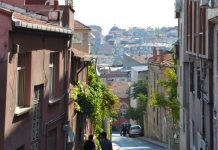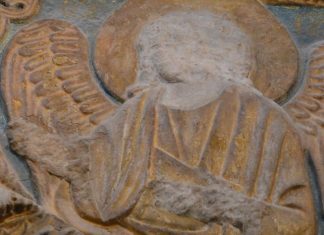As we said above, there were among the Latins such men as Bohemund and his fellow counsellors, who, eager to obtain the Roman Empire for themselves, had been looking with avarice, upon it for a long time. Seeing an opening for their plans in the expedition which was promoted by Peter, they stirred up this huge movement; and, in order to deceive the more simple, they feigned a crusade against the Turks to regain the Holy Sepulchre and sold all their possessions.
Moreover, a certain Hugh, brother of the King of France, who conducted himself with the spirit of a navatus on account of his wealth and power and the nobility of his birth, decided to leave his fatherland, as if to set out for the Holy Sepulchre. Upon reaching this decision, he looked forward to a most glorious meeting and announced in letters full of swollen insolence’ to the Emperor:
“Know, O King, that I am King of Kings, and superior to all, who are under the sky. You are now permitted to greet me, on my arrival, and to receive me with magnificence, as befits my nobility.”
At this time the Governor of Durazzo was John, son of Isaac, the Sebastocrator, of whom we have spoken above. Nicolaus, Maurocatacalon, in command of the fleet, had arranged his ships at stations around the port of Durazzo, so that he could make excursions and watch the seas, lest, perchance, pirate ships might secretly approach.
To each of these men, therefore, the Emperor, after hearing this letter (from Hugh), immediately sent a message, bidding the Governor of Durazzo watch closely by land and sea for the arrival of this man, upon whose coming a messenger was to be sent quickly to the Emperor. Hugh, however, was to be received magnificently. He further ordered the commander of the fleet to be constantly alert and on the watch with every faculty awake, not with his usual negligence.
Meanwhile Hugh reached the seacoast of Longobardy; there he sent envoys to the Governor of Durazzo, twenty-four in number, each decorated with gold and red breastplates. Along with them went Count Carpenter and that Helia who had fled from the Emperor at Thessalonica. These men addressed the following message to the Governor:
“Be it known to you, O Governor, that our lord, Hugh, will soon be here, bringing with him from Rome the golden banner of St. Peter; moreover, know that he is the highest leader of all the armies of France. Prepare yourself, therefore, to receive him and the army obeying him according to the dignity of his power; and gird yourself about to meet him.”
While they were thus commanding the Governor, Hugh, as it is said, came from Rome into Longobardy; and leaving Bari toward Illyricum, be was caught by a most awful storm and lost the greater number of his ships, together with their oarsmen and passengers. The little boat in which he saved himself was cast up by the waves, as though they spewed it forth, on the seacoast which lies half way between Durazzo and another place called Palus. It, too, was half cut to pieces.
Two men, who were on the watch for his arrival, met him after he had been saved and pressed him with these words: “The Governor is awaiting your arrival, desiring very much to enjoy your coming.” Thereupon, Hugh immediately asked for a horse, and one of those men, dismounting from his horse, very dutifully gave it over to him. As a result, the Governor, after seeing that Hugh was safe, was the first to greet him and asked whither, and whence, and what dangers and evils had befallen him in sailing.
And when he had been set upon his feet and refreshed with kind words, the Governor then put before him a well-prepared feast. After dinner he loosed him, but did not yet permit him to walk about freely, for all these things had been quickly announced to the Emperor, and the Governor was waiting to find out his commands from him.
When the Emperor was informed, he quickly sent Butumites to Epidamnus, which we have often called Durazzo, with orders to bring Hugh back with him and not to return by the direct road, but, by turning aside, to bring him to Constantinople through Philippopolis; for he was afraid of the forces and throngs of Gauls who followed. The Emperor treated him honorably with all kindness and gave him, in addition, considerable sums of money. He immediately urged the man to attach himself to him (the Emperor), and to bind himself by the customary oaths of the Latins. . .
Read More about The Byzantines Save Peter the Hermit








